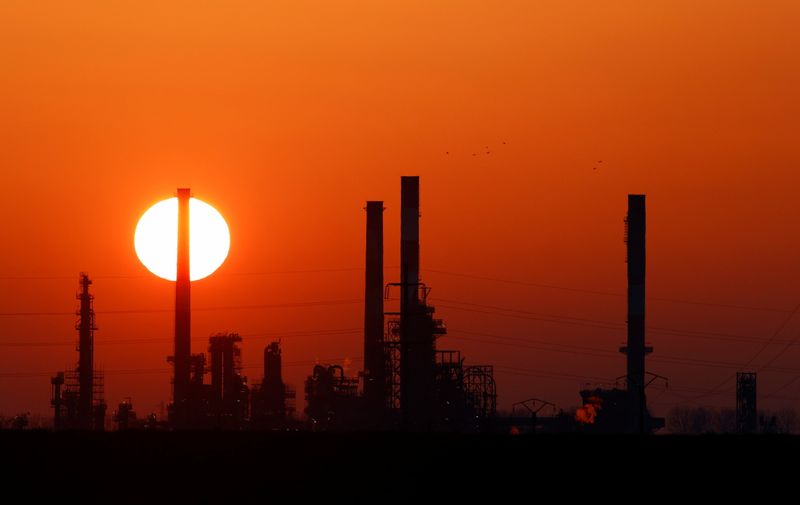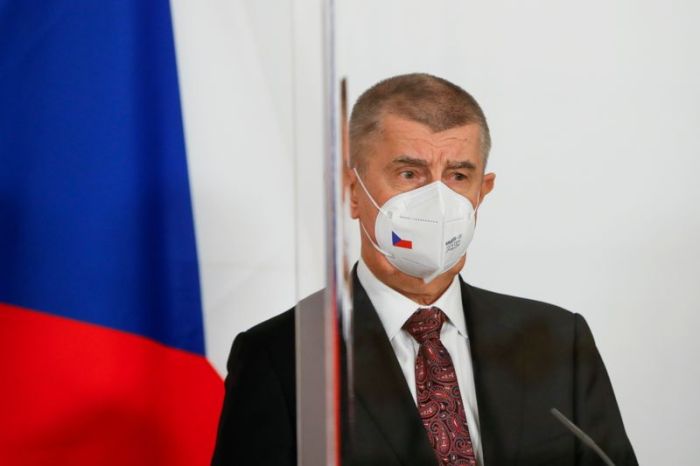By Laila Kearney
NEW YORK (Reuters) -Global benchmark Brent crude inched higher on Wednesday on improving global economic outlook, but U.S. crude fell on rising gasoline inventories amid fears that new coronavirus outbreaks will weaken a global recovery in fuel demand.
Brent crude futures were up 44 cents, or 0.7%, to $63.18 a barrel by 1:42 p.m. EDT (1742 GMT) while U.S. West Texas Intermediate crude fell 40 cents, or 0.7%, to $59.73.
U.S. crude stocks fell 3.5 million barrels last week, but gasoline inventories jumped 4 million barrels, the Energy Information Administration said, compared with expectations in a Reuters poll for a 221,000-barrel gasoline drop. [EIA/S]
“If you don’t need to make gasoline, then you don’t need to use more crude oil,” said Bob Yawger, director of energy futures at Mizuho Securities.
Oil prices found support from indications from the U.S. Federal Reserve that policymakers were universally optimistic in their overall economic outlook.
The International Monetary Fund on Tuesday said unprecedented public spending to fight COVID-19 would push global growth to 6% this year, a rate not achieved since the 1970s, which also helped the fuel demand outlook, which also helped prices.
However, rising COVID-19 cases in the Americas, which accounted for more than half of all coronavirus-related deaths last week, kept prices from moving higher.[nL1N2M01KI]
The global crude market could also face a supply increase as Iran and major world powers took steps toward reviving an agreement that froze Iran’s nuclear weapons development.
Iran and world powers agreed to form working groups to discuss the possibility of reviving the 2015 deal that could lead to Washington lifting sanctions on Iran’s energy sector and increasing oil supply.
“Iran is the single largest upside supply risk for the oil market,” said Stephen Brennock of oil brokerage PVM.
Oil prices dropped earlier this week after the Organization of the Petroleum Exporting Countries (OPEC) and allies, a group known as OPEC+, agreed to gradually ease oil output cuts from May.
(Additional reporting by Ahmad Ghaddar in London, Jessica Jaganathan in Singapore and Stephanie Kelly in New YorkEditing by Marguerita Choy and David Goodman)





















